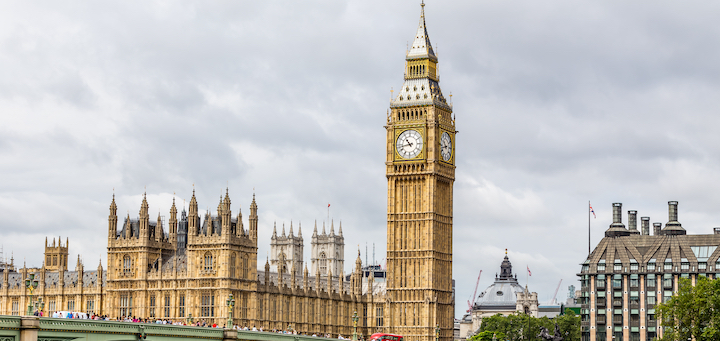The provisional local government settlement for 2024/25 announced by Michael Gove today (18 December) has been met with disappointment from local government organisations.
Here are the responses from the likes of the Local Government Association, CIPFA, SIGOMA, Solace, the County Councils Network, and London Councils in full.
Shaun Davies, chair of the Local Government Association: “The funding uplift announced by the government today assumes that all councils will increase their council tax bills by the maximum allowed in 2024/25. This means councils are again left facing the difficult choice about raising bills to bring in desperately needed funding.
“Today’s settlement does not provide enough funding to meet the severe cost and demand pressures which have left councils of all political colours and types warning of the serious challenges they face to set balanced budgets next year. Councils in England continue to face a funding gap of £4bn over the next two years as today’s announcement does not change the funding gap facing councils this year and next.
“It is therefore unthinkable that government has not provided desperately needed new funding for local services in 2024/25. Although councils are working hard to reduce costs where possible, this means the local services our communities rely on every day are now exposed to further cuts.
“No council is now immune to the growing risk to their financial sustainability. The government urgently needs to address the growing financial crisis facing councils and come up with a long-term plan to sufficiently fund local services through multi-year settlements.”
Rob Whiteman, CEO of the Chartered Institute of Public Finance and Accountancy (CIPFA): “Although the secretary of state acknowledges that some well-run authorities may struggle to balance their budgets in 2024, he has not used this provisional settlement to provide a much-needed lifeline. Many local authorities risk drowning in a sea of rising demand and inflationary costs.
“Following the Autumn Statement, it is disappointing that this well-worn cycle of “crisis-cash-repeat” funding remains.
“If the government is to meet demand and cover growing cost pressures on challenges that councils face, this volatile and uncertain funding approach ought to be replaced by long-term settlements for our most essential services.
“The funding settlement hides the complexity of a fundamentally flawed system. Much of this new money will be consumed by the increased national minimum wage and rising temporary accommodation costs. The settlement fails to significantly address the long-term funding crisis faced by councils.”

Sir Stephen Houghton, chair of the Special interest Group of Municipal Authorities (SIGOMA): “Today’s funding increase will not match inflationary and demand-led pressures. In our letter to the PM, we warned that half of the increase comes from assumed council tax increases which are regressive and raise funding in a way unrelated to need. There is nothing new to address the funding pressures in children’s services, the biggest pressure our members currently face.
“Council finances will remain on a knife-edge until funding levels are returned to a sustainable level and the distribution is fairer, fully recognising need. The final settlement in late January is now the government’s last opportunity to provide councils with the funding and flexibility they need to stabilise their finances. If this is not done then there will be a surge of section 114s next year.”
Patrick Melia, spokesperson for finance at Solace: “Seeing the local government financial settlement, despite the best efforts of civil servants, once again published in the last week before Christmas is not helpful. But even less welcome is the content of the settlement.
“Local authorities right across England are facing unprecedented financial pressures – and all the independent analysis makes clear that the problems are systemic, in particular due to rising demand for adults and children’s social care, special educational needs provision and housing services, all accentuated by inflation. The ever-growing number of councils issuing or warning of forthcoming s114 notices underlines the peril we face. Without a genuinely sustainable financial settlement for the sector, it won’t be long before a stream of well-managed authorities start to tip over the edge.
“The bare fact is there are very few savings options left. And the cuts that councils are now making to their services in order to remain financially sustainable are only storing up trouble for years ahead – reducing quality of life for our residents in the here and now, but also leading to increasingly complex social problems that cost the public purse much more in the long-run. Even worse, the chronic underfunding of our services and our areas will negatively impact our national economic prospects at a time when an upswing in productivity and growth is much needed.
“Looking ahead, whoever forms the next government must think more long-term and move towards a more sustainable local government finance system, including a minimum three-year financial settlement to allow for more effective planning. It must also close the persistent and growing funding gaps in both adult and children’s social care and provide additional funding to cover the cost of inflation and higher than expected pay awards for council workforces. Anything less and the cost for the country in years to come will be even higher.”
Barry Lewis, finance spokesperson and vice-chairman of the County Councils Network (CCN): “The announcement of the provisional local government finance settlement today will be bitterly disappointing for England’s county authorities. The County Councils Network (CCN) had put together a strong case for emergency funding next year to address the significant financial headwinds councils face which are outside of our control. But despite constructive discussions with ministers over recent days the government has chosen not to act.
“With no additional funding announced, our councils will have no choice but to implement more severe reductions to services and to levy higher council tax rises. This will undoubtedly be a double whammy for residents during a cost of living crisis, while an increasing number of local authorities will struggle to deliver a balanced budget next year.
“We know that government finances are tight, but there is a value in investing in public services, so we will now be making our case to county MPs ahead of the parliamentary vote on the final local government settlement to ensure that they are aware of the extent to which highly valued local services will have to be cut next year unless further funding is provided.”
Claire Holland, acting chair of London Councils: “We are deeply concerned 2024 looks set to be another year of massive budget pressures and a continuing squeeze on Londoners’ local services.
“The measures announced by the government fall short of what we need. While the funding deal will bring some relief, it won’t be enough to plug the budget gaps we face and restore stability to town hall finances.
“Much of this uplift also relies on council tax rises, which will be extremely difficult for Londoners struggling with the cost of living.
“The entire system of local government funding needs urgent reform. For too long, boroughs in the capital have been left with inadequate resources despite London’s population and demand for services growing fast.”
—————
FREE weekly newsletters
Subscribe to Room151 Newsletters
Follow us on LinkedIn
Follow us here
Monthly Online Treasury Briefing
Sign up here with a .gov.uk email address
Room151 Webinars
Visit the Room151 channel











